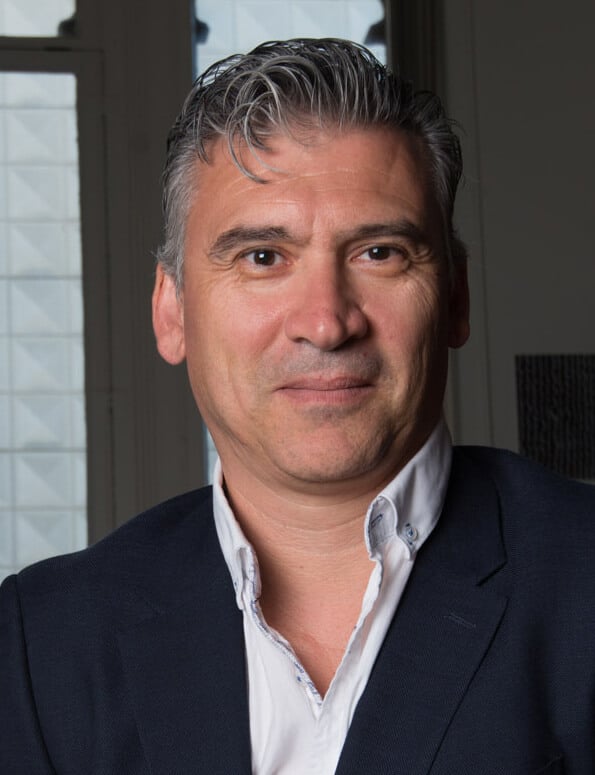Nurturing your mental well-being: Words of wisdom from ARVO members
"Nobody can save you but yourself, and you're worth saving. It's a war not easily won, but if anything is worth winning then this is it."
— Henry Charles Bukowski (German-American poet and novelist)
As we commemorate World Mental Health Day (Oct. 10), some ARVO members share words of advice and resources on taking care of your mental health.

Rajashekhar Gangaraju, MS, PhD
Associate Professor
The University of Tennessee Health Science Center, Department of Ophthalmology
Hamilton Eye Institute, Department of Anatomy and Neurobiology (Memphis, Tenn.)
In the intricate tapestry of scientific careers, the threads of work and life must be delicately woven together to form a harmonious balance. Just as a finely tuned experiment requires precision, so too does the art of living well. Embrace the rhythm of discovery, but also remember that innovation thrives in the spaces between molarity equations and data points.
Work-life balance is an ongoing process. Nurture your mind with exploration, but don't neglect the beauty of a sunset outside the laboratory. Know that low-stress levels improve working memory, but recognize the unhealthy stress levels leading to anxiety and depression. A healthy work-life balance isn't an interruption to your journey of scientific exploration; it's the compass guiding you toward sustained brilliance. Like a catalyst driving a reaction, balance propels both personal well-being and groundbreaking discoveries. Cherish your role as both scientist and sentient being, for it's in this duality that you'll find the true essence of success and well-being.

Yanhui Ma, PhD
Research Scientist
The Ohio State University (Columbus, Ohio)
Mental health should definitely be taken seriously. With the pandemic, I think mental health is becoming a bigger issue. I can think of the following topics that could be addressed especially for early career:
- Burnout is real — We should be able to identify burnout and when we are burnt out, to keep pushing ourselves only makes it worse. These articles talk about the signs of burnout and how to deal with it:
- Prevention — Be aware of gaslighting and bullying. I think step 1 is damage control, and the most effective way is to identify those triggers and stay away as soon as we can to prevent those mental stresses or damage. As a trainee or early-career researcher, I think it is important to be aware of gaslighting, bullying, and power play. In the ideal world, PIs or supervisors would support their trainees or subordinates, however in reality I’ve heard so many horrible experiences. In hindsight, they should have left their position or toxic environment sooner.
- Meditation on a daily basis — I found meditation very useful to deal with burnout and to take care of our mental well-being in general.
- Be gentle to yourself — This is SO important! There are so many things that are out of our control, and we should be nice to ourselves at least.
- Mental health is not a destination, but a process — Mental health is not a one-time quick-fix problem; it requires maintenance and constantly reflecting on how we feel, think and act.

Reyna I. Martínez-De Luna, PhD
Research Instructor
The Center for Vision Research, Upstate Medical University Department of Ophthalmology and Visual Sciences
(Syracuse, N.Y.)
If I said that I have never dealt with imposter syndrome, I would be lying. Yes, I have dealt with imposter syndrome, and every so often it decides to creep back in. The encouragement of other women mentors has been a big part of overcoming these feelings when they show up.

Frank J. Lovicu, PhD, FARVO
Professor of Ocular Cell and Developmental Biology
University of Sydney (Australia)
Over my years of research, it is obvious that researchers are all very different in their approach to their work, what drives them, and how they each best execute their goals. With that said, there is not one ‘fits all’ bit of advice that works for everyone. I can only share what has worked for me over the years to avoid burnout.
It is important to know your limits and how much you can realistically take on and achieve. Others may be better at managing their time, so try not to compare yourself to those around you, as we are all challenged in different ways at work and in our personal lives. The first tip would be to set boundaries between your work and personal life. Do you need to constantly work those excessive hours, or even bring work home? As mentioned, time management is important, and some are better at it than others. Learn to prioritize tasks and allocate time accordingly to those that need it most, to avoid undue stress. If you are overwhelmed, take regular breaks to clear your mind and reduce stress. Be sure to have a life outside of work, something to help you disengage and de-stress, like a hobby. Ensure that this hobby though does not take over your life and work. Find that balance.
Ultimately preventing stress is a major factor in avoiding burnout. Another major thing is to learn to say ‘no’ when your plate is full. This comes down to picking your battles and ensuring the most important tasks are completed in a timely manner. A social support network of friends and family is important, so make sure you share your issues, as this is sometimes enough to help you succeed. There are many more things to add here, but if you find these do not help, you may want to seek professional help for guidance and support. Always be true to yourself and reward yourself for your efforts.
Do you have any pearls of wisdom on taking care of your mental health? Share below, or on social media and tag @ARVOinfo!
